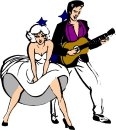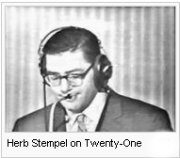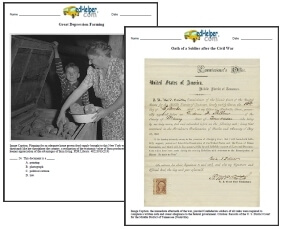
Worksheets and No Prep Teaching Resources
Reading Comprehension Worksheets
The 1950's

The 1950's
 Worksheets and No Prep Teaching Resources Reading Comprehension Worksheets The 1950's |
 The 1950's |
| edHelper's suggested reading level: | grades 6 to 8 | |
| Flesch-Kincaid grade level: | 6.93 |
|
TV Quiz Show Scandals
By Jane Runyon |

|
 1 Television became a very popular form of entertainment in the 1950's. When the decade began, less than one household out of ten owned a television set. By the end of the 1950's, almost nine of every ten households owned at least one television set.
1 Television became a very popular form of entertainment in the 1950's. When the decade began, less than one household out of ten owned a television set. By the end of the 1950's, almost nine of every ten households owned at least one television set. |
Create Weekly Reading Books
Prepare for an entire week at once! |
| Leave your feedback on TV Quiz Show Scandals (use this link if you found an error in the story) |
 |
The 1950's
|
 |
United States
|
|
|
 | Fifty States Theme Unit |
 |
Document Based Activities |